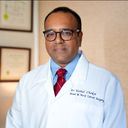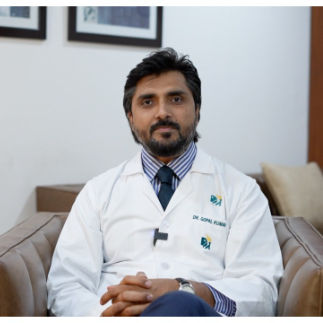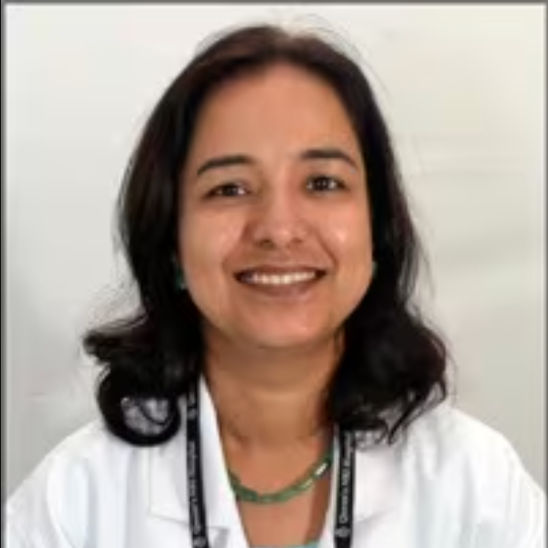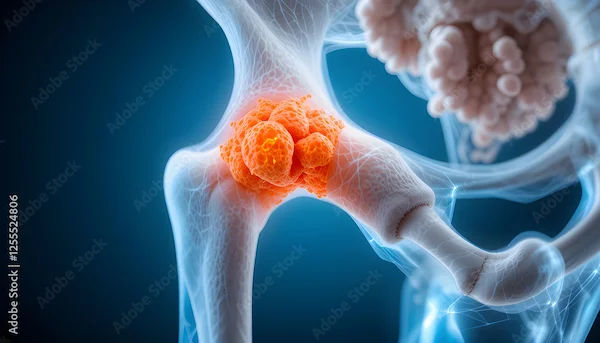Early Cancer Detection Signs
Detecting cancer early improves treatment success. Look out for warning signs like unusual lumps, abrupt weight loss, persistent fatigue, or changes in skin. Awareness of these subtle symptoms can help intervene and provide timely treatment.

Written by Dr Sonia Bhatt
Last updated on 3rd Jul, 2025
Routine screenings and knowledge of subtle signs can help detect cancer at an early stage, increasing the chance of treatment success. Hence improving survival rates. Obtaining awareness about recognising early warning signs can help individuals take control of their health.
To get a better grasp of it, let’s delve into understanding cancer detection signs along with their potential risk factors and diagnostic measures. This understanding can help take the right step at the right time.
General Signs and Symptoms of Early Cancer
Cancer symptoms vary from one individual to another based on the type and stage. Here are some general signs to watch out for:
Unexplained Weight Changes: Significant weight loss or gain without dietary or lifestyle changes.
Fatigue: Extreme tiredness that doesn’t improve with rest.
Skin Changes: New moles, changes in existing moles, sores that don’t heal, or jaundice (yellowing of skin or eyes).
Unusual Bleeding or Bruising: Blood in stool, urine, or unexpected bleeding with no known cause.
Lumps or Swelling: Thickening or unusual lumps in the breast or other parts of the body.
Bowel or Bladder Changes: Persistent constipation, diarrhoea, or blood in the urine.
Pain: Unexplained or worsening pain, including headaches.
Eating Problems: Loss of appetite, difficulty swallowing, nausea, or abdominal discomfort.\
Cough or Hoarseness: Persistent cough or voice changes.
Mouth Changes: Sores, bleeding, pain, or numbness in the mouth.
Fever or Night Sweats: Persistent fever or sweating without a clear cause.
Vision or Hearing Issues: Sudden or unexplained problems with sight or hearing.
Specific Signs of Common Cancers
Cancer is of different types, and there are different signs to recognise them. The following table describes the common cancers and their signs:
| Cancer Type | Specific Signs |
| Breast Cancer | Lumps, nipple discharge, changes in size, shape, or skin dimpling. |
| Skin Cancer | New or changing moles, irregular borders, multiple colours. |
| Lung Cancer | Persistent cough, shortness of breath, or chest pain. |
| Colorectal Cancer | Blood in stool, altered bowel habits, or abdominal discomfort. |
Importance of Regular Screenings
Cancer screening happens before symptoms even arise. Let’s look at why regular screenings are necessary:
Identifies cancer in its early stages, making it easier to treat
Detects precancerous changes, helping prevent cancer from developing
Reduces the need for extensive treatment and shortens recovery time
Targets healthy, asymptomatic populations to uncover hidden conditions
Ensures timely follow-up with appropriate diagnosis and treatment facilities
Saves lives by reducing the prevalence of advanced cancer cases when implemented effectively
Risk Factors for Cancer
There are several factors to look out for that aids in developing cancer. Here is an overview of the several risk factors:
Tobacco and Alcohol: Tobacco use is linked to cancers throughout the body, and alcohol increases the risk of several cancers. Avoiding these substances lowers the risk.
Diet and Physical Activity: Poor diet, inactivity, and obesity increase the risk of cancers such as breast and colon cancer. Maintaining a healthy weight and staying active helps reduce this.
Infections: Viruses like Hepatitis B, Hepatitis C, and HPV are major risk factors for liver and cervical cancers. HIV also raises the risk of specific cancers.
Environmental Exposure: Air pollution and carcinogenic substances in certain workplaces increase the likelihood of cancer over time.
Family History: A family history of cancer may indicate a genetic predisposition, so sharing this information with your doctor is crucial.
Diagnostic Tests for Early Detection
Healthcare providers use different types of diagnostic tools for early detection:
Imaging Tests: Mammograms, CT scans, and MRIs
Laboratory Tests: Blood tests for tumour markers, such as PSA for prostate cancer
Biopsies: Sampling and examining tissues for abnormalities
Endoscopic Procedures: Colonoscopies and endoscopies to inspect internal organs
Role of Healthcare Providers
Healthcare providers play an important role in cancer care, beginning from early detection to follow-ups. Their role includes -
Promoting cancer screening and increasing participation through education and reminders.
Minimising diagnostic delays with fast-track referrals and timely risk assessments.
Providing effective follow-up care for cancers like breast and colorectal with clear guidelines and specialist support.
Delivering holistic care by addressing cancer and managing other health conditions.
Preventive Measures and Lifestyle Changes
It is not that difficult to make small and simple changes in your lifestyle that can reduce cancer risk. Let’s look at some things you can take care of -
Avoid Tobacco: Smoking and tobacco use are major cancer causes; quitting is the best prevention.
Eat Healthy: Focus on fruits, vegetables, whole grains, and healthy proteins. Limit red meat, processed foods, and alcohol.
Stay Active: Regular exercise and maintaining a healthy weight lower the risk of several cancers.
Protect from the Sun: Use sunscreen, wear protective clothing, and avoid tanning beds to prevent skin cancer.
Get Vaccinated: Vaccines for HPV and Hepatitis B protect against cancers linked to these infections.
Practice Safe Habits: Safe sex and avoiding shared needles reduce cancer-causing infections.
Routine Check-ups: Regular screenings improve early detection and treatment outcomes.
Potential Challenges in Early Detection
Challenges in early cancer detection include:
Misinterpretation of Symptoms: Early stages may not present noticeable symptoms clearly.
Access to Healthcare: Limited access can delay screenings and diagnosis.
Awareness: Insufficient knowledge about early signs and screening importance.
Conclusion
Early detection of cancer is a powerful tool in improving survival rates and treatment outcomes. If you start to recognise general or specific symptoms early on, you can take proactive steps toward safeguarding your health.
Some simple lifestyle changes and regular screenings can significantly reduce cancer risks. Similarly, consulting a healthcare professional in a timely manner can help guide, educate, and support patients, which remains an important part of the cancer journey and reduces risks.
While challenges may still persist, increasing awareness and improving access to healthcare can help overcome these barriers, ultimately saving lives and enhancing the quality of care.
Consult Top Oncologists
Consult Top Oncologists

Dr Devashish Tripathi
Radiation Specialist Oncologist
20 Years • MBBS, PLAB, MRCP (UK)- General Medicine, FRCR (Oncology), Certificate of Completion of Training (CCT)- Clinical Oncology
Delhi
Apollo Hospitals Indraprastha, Delhi

Dr. Gopal Kumar
Head, Neck and Thyroid Cancer Surgeon
15 Years • MBBS, MS , FARHNS ( Seoul, South Korea ), FGOLF ( MSKCC, New York )
Delhi
Apollo Hospitals Indraprastha, Delhi
(25+ Patients)

Dr. Vishal Choksi
Head and Neck Surgical Oncologist
20 Years • American Head & Neck Society (AHNS) certified from Memorial Sloan-Kettering Cancer Centre, American Board of Surgery (ABS) certified general surgeon, MBBS (India)
Ahmedabad
Apollo Hospitals Gandhinagar, Ahmedabad

Dr. Gopal Kumar
Head, Neck and Thyroid Cancer Surgeon
15 Years • MBBS, MS , FARHNS ( Seoul, South Korea ), FGOLF ( MSKCC, New York )
Noida
Apollo Hospitals Sector 26, Noida

Dr Sunita Samleti
Oncologist
18 Years • M.D. (Pathology)- TN Medical College, Mumbai University, Mumbai, Mar 2005 M.B.B.S. Grant Medical College, Mumbai University, Mumbai, Oct 1999
Chinagadila
Apollo Hospitals Health City Unit, Chinagadila

